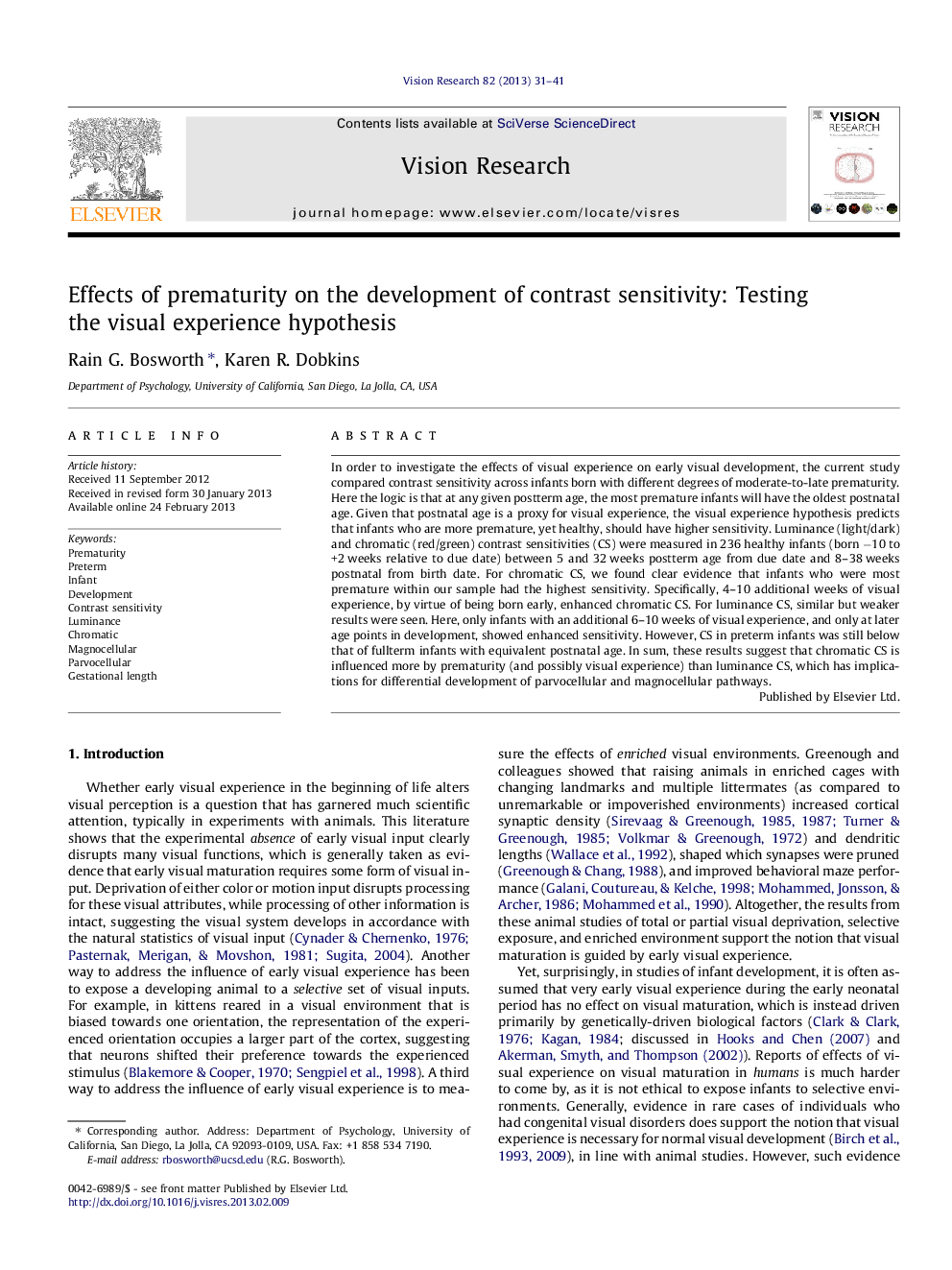| Article ID | Journal | Published Year | Pages | File Type |
|---|---|---|---|---|
| 4033815 | Vision Research | 2013 | 11 Pages |
In order to investigate the effects of visual experience on early visual development, the current study compared contrast sensitivity across infants born with different degrees of moderate-to-late prematurity. Here the logic is that at any given postterm age, the most premature infants will have the oldest postnatal age. Given that postnatal age is a proxy for visual experience, the visual experience hypothesis predicts that infants who are more premature, yet healthy, should have higher sensitivity. Luminance (light/dark) and chromatic (red/green) contrast sensitivities (CS) were measured in 236 healthy infants (born −10 to +2 weeks relative to due date) between 5 and 32 weeks postterm age from due date and 8–38 weeks postnatal from birth date. For chromatic CS, we found clear evidence that infants who were most premature within our sample had the highest sensitivity. Specifically, 4–10 additional weeks of visual experience, by virtue of being born early, enhanced chromatic CS. For luminance CS, similar but weaker results were seen. Here, only infants with an additional 6–10 weeks of visual experience, and only at later age points in development, showed enhanced sensitivity. However, CS in preterm infants was still below that of fullterm infants with equivalent postnatal age. In sum, these results suggest that chromatic CS is influenced more by prematurity (and possibly visual experience) than luminance CS, which has implications for differential development of parvocellular and magnocellular pathways.
► Healthy preterm infants had enhanced chromatic contrast sensitivity (CS). ► Specifically, 4–10 weeks additional visual experience enhances chromatic CS. ► Luminance CS is less affected by prematurity than chromatic CS. ► Results suggest parvocellular pathway is highly influenced by prematurity. ► Magnocellular pathway may be more driven by biological than experiential factors.
